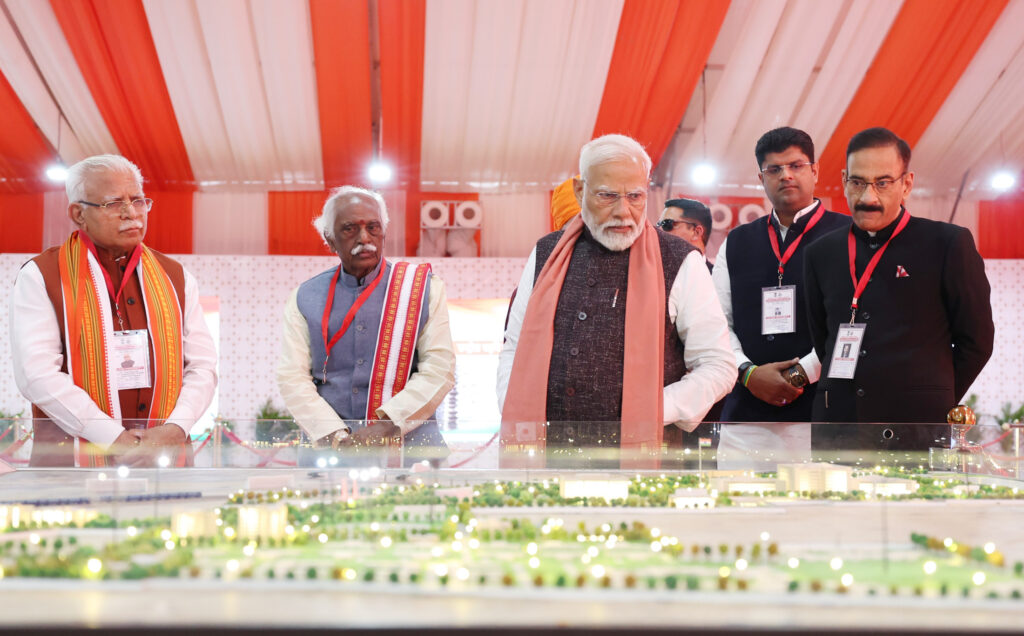Rama Krishna Sangem
Supreme Court of India on February 15 struck down electoral bonds and called for disclosure of details of all payments on a website. The bonds, in view of the SC’s constitutional bench, is unconstitutional and a quid-pro quo between business houses and political parties. The opposition parties hailed it a landmark verdict while several analysts termed it as bold move on the part of the SC. The ruling BJP kept silent or mutely reacted.
This may be a landmark judgment from the top court. But, if we look at the nature of electoral bonds and their beginning, it appears that the SC has only dealt with the tip, not with the base of the iceberg. This whole of iceberg is the symbiotic relationship between our political parties and businesses. Are we just pretending to be ignorant to this harsh reality – that in India one cannot do business and succeed unless they have political patronage?
It is a fact that right form village level to state and national level, anyone who wants to do some business has to have some sort of political backing, if not involvement. We can see this from the pattern of a set of businessmen or contractors get most deals while other set are kept aside, during the tenure of a political party in power. Once that party loses power, another set of businessmen occupy the space.
Or the same old set of businessmen enter fresh deals with the new ruling party and pay their royalty. This is an open secret in our country. A major reason for this is the vice-like grip of political system on our natural resources and business environment. Though India claims to be a supporter of Ease of Doing Business concept of the World Bank, not much has been done in this direction. Some small procedures are done away but not the whole process.
The SC bench led by Chief Justice of India DY Chandrachud and four other justices rightly felt that these bonds with a provision of cloak of secrecy and scope for unlimited donations are a way of influencing the policies of the government. But, there is no way we can stop business houses influencing government policies, not only in India, but across the world. Even the developed west too faces the same situation.
Why these bonds came up?
Before 2017, when then Finance minister Arun jaitley in his budge introduced these electoral bonds, the system of political donations was more crude and in black. We all know, every political party spends huge amounts of funds in elections, but their known sources of income is limited – not even 1/10th of the spending. Only amounts above Rs 20,000 needed to be disclosed.
Amounts less than Rs 2,000 were not needed to be disclosed. So, all parties used to show the donations in Rs 2,000 denominations and claimed them as unknown sources. At the time, some democracy reforms outfits called for electoral bounds for transparency in political funding. That was the origin of these bounds in 2017. But, the Centre issued a notification on the bonds only on January 12, 2018.
In the beginning, there was a provision to disclose the details of the bond buyers. But, later income tax laws were amended to avoid such disclosure. Naturally the party in power at the Centre gets a lion’s share of the donations – of the Rs 16,500 crore came through the bonds, BJP got close to Rs 10,000 in the last six years. Followed by Congress, close to Rs 1,500 crore followed by others.
Even a party like BRS in Telangana got close to Rs 900 crore in the last six years from these bonds. You can understand the power of being a ruling party to attract donations from registered companies. Earlier there was a provision that only 5 per cent of the net profits of the last 3 years can be used for the bonds, but later this was removed. The SC should have suggested some changes to the bonds, but the top court scrapped it completely.
What will happen now?
Now the situation will be back to square peg. As the bonds have been stopped, companies or business houses will have to get back to the old ways – of giving money to the parties through illegal methods and in black. Though digital payments are encouraged in the last 8 years, there’s huge cash with political leaders. We will go back to the pre-2017 era for finding ways to fund political parties.
Instead, the SC should find alternative ways to fund the parties. Stopping an existing system is not cleansing the system. Unless there is a fool proof system of encouraging healthy donations to political parties, it is not possible to completely stop them. After all, a company donating funds to its choicest party that promotes pro-business environment is not a crime, as long as it is transparent and legal.



